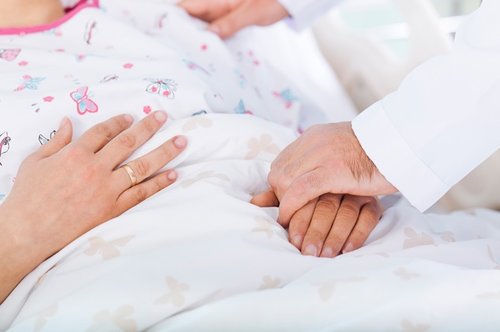The need for parents’ physical and emotional care throughout a terminal pregnancy
The diagnosis of a lethal fetal anomaly poses significant challenges for obstetricians, pediatricians, and clinicians, who often have little experience or training in how to best care for the baby and the grieving parents. According to a study published by scientists at Cork University Maternity Hospital in Cork, Ireland, the most profound effect these pregnancies can leave on families is often a psychological one. Because of this, they propose that a multidisciplinary team approach is best to assist and support parents from the time of initial diagnosis all the way through postnatal care

Study Highlights

PHASES OF A TERMINAL PREGNANCY
Initial Diagnosis – parents may experience shock, denial, anger, and grief.
Adaptation – with the right support, parents may begin to cope with their loss and may even experience positive outcomes in their pregnancy, delivery, and postnatal care.

WHO IS INVOLVED IN A MULTIDISCIPLINARY TEAM?
Obstetricians, neonatologists, sonographers, bereavement and loss midwives, social support services and pastoral care support. Learn more about Perinatal Hospice and Palliative Care
“A MULTIDISCIPLINARY APPROACH WITH CONTINUITY OF CARE IS ESSENTIAL IN HELPING THESE FAMILIES UNDERSTAND AND ADJUST TO THE DIAGNOSIS, AND IS ALSO NECESSARY TO ENSURE QUALITY OF CARE THROUGH PREGNANCY, LABOR AND DELIVERY. THE EMOTIONAL AND SPIRITUAL NEEDS OF THE FAMILY ARE JUST AS IMPORTANT AS THE PHYSICAL MANAGEMENT OF THESE PREGNANCIES.”
— McNamara, O’Donoghue, et al.

THE PERCENTAGE OF INFANT DEATHS IN THE DEVELOPED WORLD CAUSED BY CONGENITAL ANOMALIES.

THE PERCENTAGE OF WOMEN WHO EXPERIENCE MODERATE TO SEVERE BREAST ENGORGEMENT WHEN NO TREATMENT IS GIVEN FOLLOWING THE CESSATION OF LACTATION.

THE YEAR THE FIRST REPORT ON MATERNAL GRIEF REACTION IN STILLBIRTH WAS PUBLISHED. TWO YEARS LATER, THE FIRST REPORT ON PARENTAL GRIEF FOLLOWING NEONATAL DEATH WAS PUBLISHED. PRIOR TO THIS, THE IMPLICATIONS OF PERINATAL DEATHS WERE OFTEN IGNORED.
IF NO TREATMENT OR SUPPORT IS GIVEN, PSYCHOLOGIC EFFECTS MAY INCLUDE POST-TRAUMATIC STRESS DISORDER, RELATIONSHIP DIFFICULTIES, ANXIETY, DEPRESSION AND SUICIDAL IDEATION.

Intrapartum Care: Making Decisions
Prior to delivery, there are a number of decisions that a multidisciplinary team can help parents make, such as:
How and when to deliver?
Should the fetal heart be monitored?
What are your wishes for your delivery experience?
More Questions to Ask

Neonatal Care: Plan for Compassion
“If the [baby] is born alive then senior neonatal input is necessary to avoid inappropriate attempts at resuscitation from more inexperienced members of the neonatal team. The presence of an agreed and documented plan of care is vital.”
— McNamara, O’Donoghue, et al.

Postnatal Care: Grieving & Healing
“Postnatal follow-up, ideally by the same team who looked after the mother during pregnancy, is experienced by parents as a vital milestone in their grieving process. Receiving postmortem reports and other test results may also allow some sense of closure. For most parents it will also be an opportunity to begin to invest in the future and raise the subject of subsequent pregnancies.”
— McNamara, O’Donoghue, et al.

